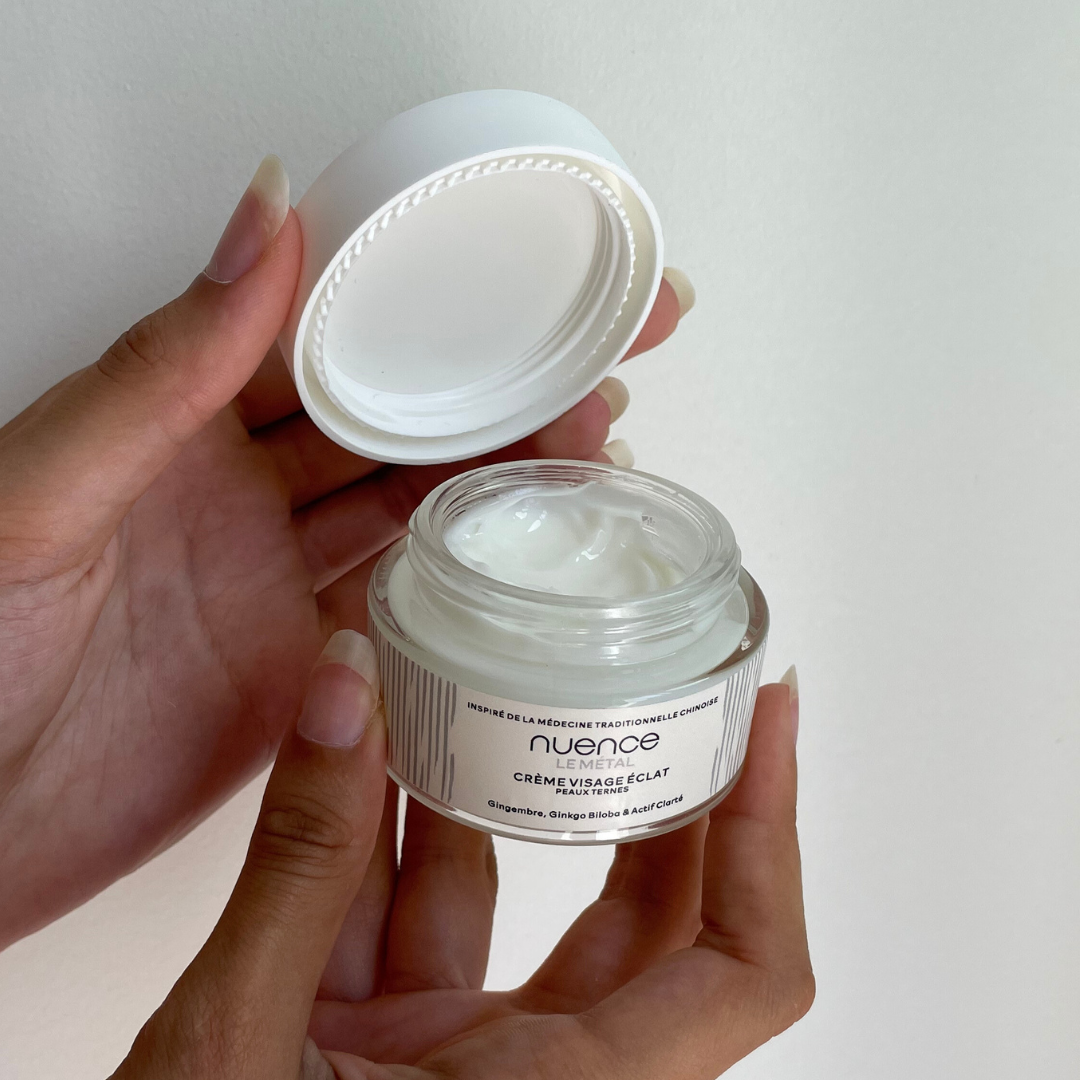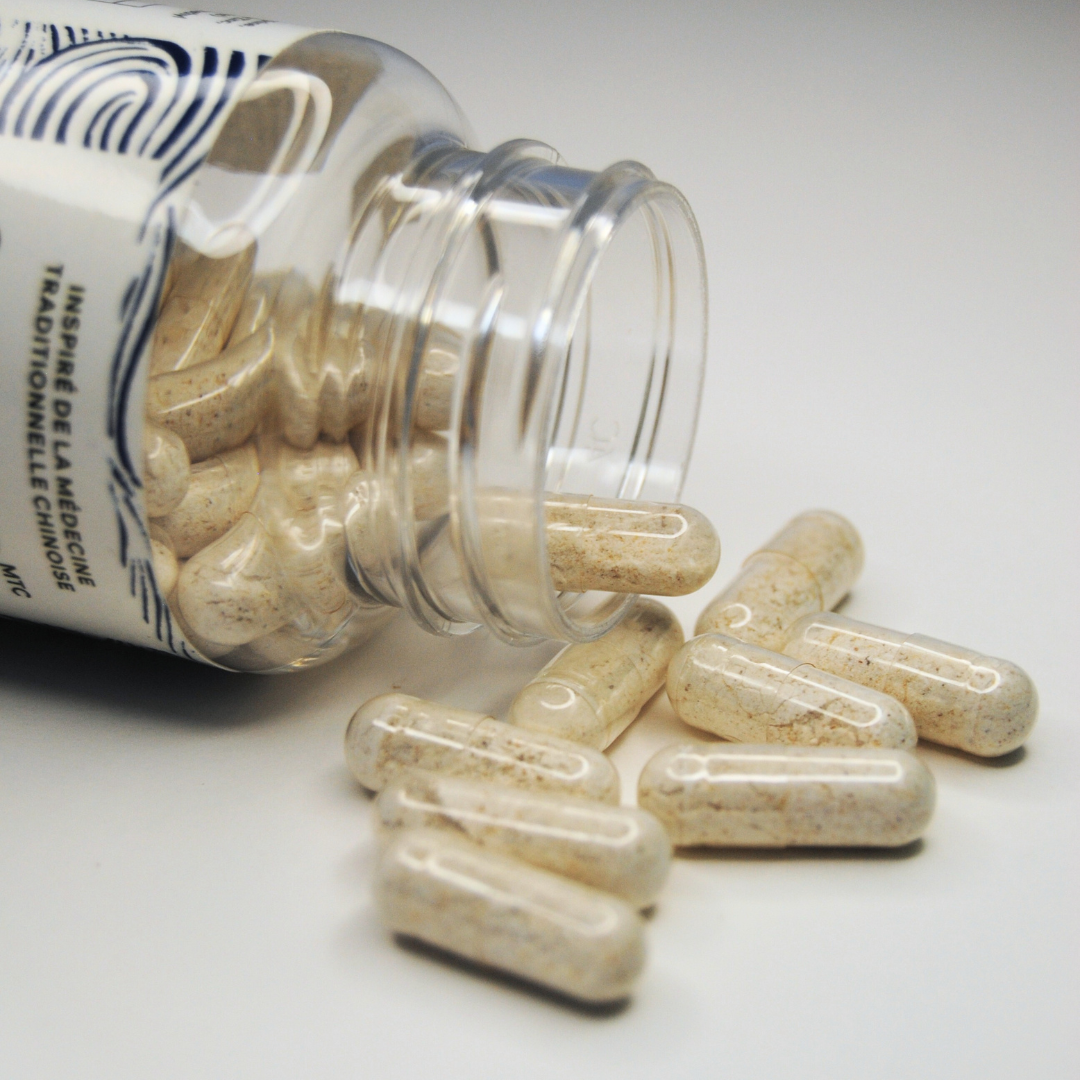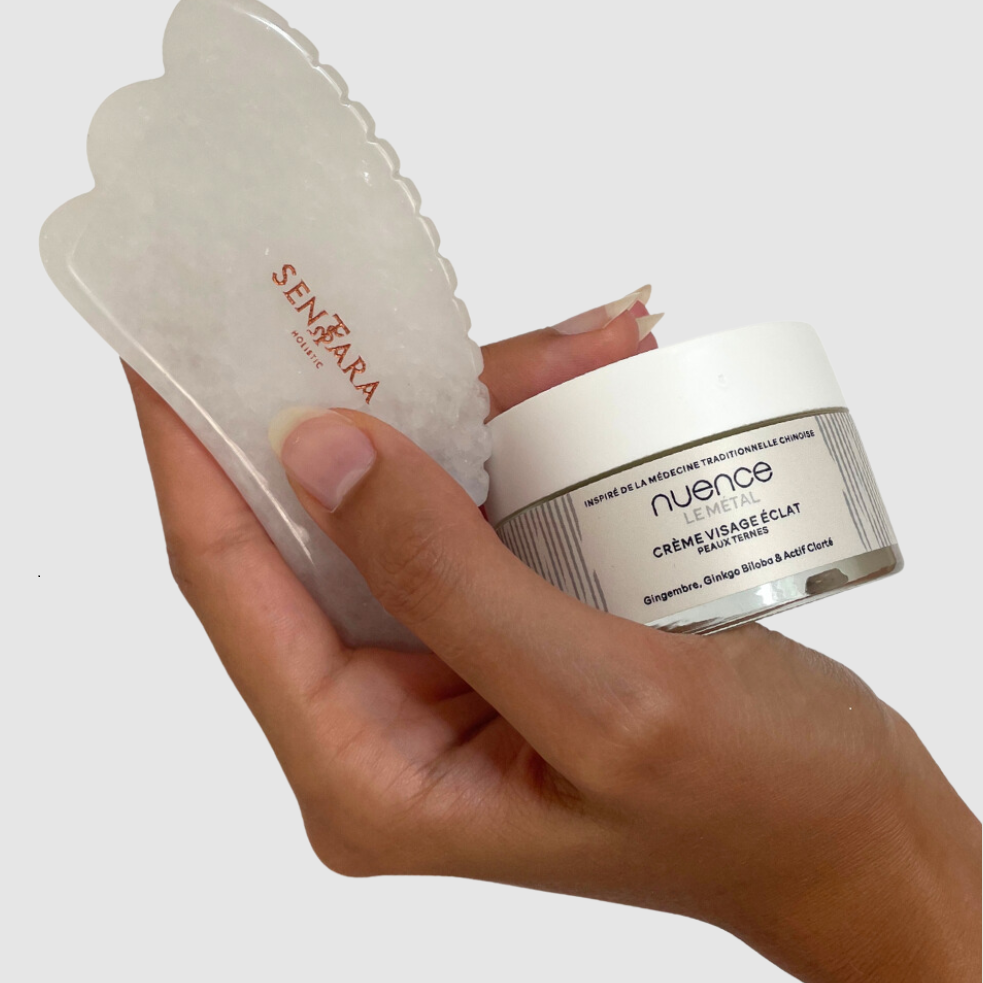In the West, menopause is often perceived as the end of fertility and youth. Yet, in Traditional Chinese Medicine (TCM), it is called Second Spring —a time of transformation, recentering, and renewal. This physiological change is seen as an opportunity to rebalance energies , nourish one's inner essence, and cultivate inner peace.
At Nuence MTC, we believe this transition deserves to be accompanied with gentleness, science, and meaning. As part of our collaboration with Nuwa , and to mark the launch of a limited edition dedicated to feminine balance, we dedicate this article to exploring the key aspects of this transition: hormonal, emotional, and energetic. We share the principles of a holistic approach, grounded in Traditional Chinese Medicine and adapted to contemporary needs.
Menopause according to Chinese medicine
Traditional Chinese Medicine (TCM) views menopause as an imbalance between Yin and Yang, often linked to a deficiency of the Kidney ( Shen ) – the root organ of vital energy – and a stagnation of Liver Qi ( Gan ), which governs emotions. Symptoms such as hot flashes, insomnia, dryness, or irritability are interpreted as manifestations of this energetic imbalance.
But beyond the symptoms, Traditional Chinese Medicine (TCM) sees this period as a reorientation of the Blood towards the Shen , the Spirit. In other words, Vital energy and blood, once mobilized for fertility and menstrual cycles, are redirected inward—particularly toward the Shen , the Spirit. This means the body no longer needs to dedicate as many resources to reproduction and can now nourish the emotional, mental, and spiritual spheres more fully. It is an invitation to slow down, refocus, and cultivate inner peace.
This is the time to reconnect with yourself, to slow down, to nourish your essence, and to cultivate wisdom.
Natural solutions offered by Traditional Chinese Medicine
Traditional Chinese Medicine (TCM) offers a holistic approach to menopause, based on balancing energies, regulating emotions, and supporting key organs. Rather than treating symptoms in isolation, it seeks to reharmonize the entire system , taking into account the body, mind, and lifestyle.
1. Chinese herbal medicine: nourishing Yin, calming Fire
Chinese medicine is rich in herbs that support women during menopause. They act on the Kidney, Liver, Heart, and Spleen—the organs most involved in this transition.
🌿 Examples of key plants:
- Rehmannie (Shu Di Huang) : Nourishes Kidney Yin, combats dryness, hot flashes, and profound fatigue
- Chinese Angelica (Dang Gui) : regulates the Blood, soothes residual menstrual pain, and supports mood. Dang Gui is used by NUENCE TCM in the Vitality Facial Treatment . The exceptional nutritional richness of its root, rich in flavonoids (with anti-inflammatory, immunostimulating and antioxidant effects), makes it comparable to that of Ginseng; it is also called 'women's Ginseng' given its effectiveness in treating gynecological disorders.
- White peony (Bai Shao) : calms the liver, reduces irritability, and promotes sleep. A beneficial plant for women; see our previous article on white peony root.
- Epimedium (Yin Yang Huo) : tonifies Yang, improves libido and vitality
- Anemarrhena (Zhi Mu) : Reduces internal fire, relieves hot flashes
- White mulberry (Morus alba) : moistens the lungs and liver, soothes redness and dry skin
💡 These plants are often combined in formulas like Menoprogen , see further down in the article.

2. Acupuncture and moxibustion: rebalancing the meridians
Acupuncture is particularly effective for:
- Regulating hot flashes (points such as Du20 , Kid3 , Sp6 )
- Improve sleep and calm the mind ( Ht7 , Yin Tang )
- Supporting vital energy and reducing fatigue ( Ren4 , St36 )
Moxibustion , which involves heating certain points with mugwort, is used to tonify Kidney Yang and warm the uterus.
3. Chinese dietetics: eating to balance
Traditional Chinese Medicine (TCM) recommends a diet adapted to the season and individual constitution.
- Foods that nourish Yin : black sesame, tofu, goji berries, seaweed, cooked pears
- Foods that calm Fire : cucumbers, watermelon, chrysanthemum tea
- Warm and easily digestible dishes : soups, broths, whole grains
 4. Emotional regulation and spirituality
4. Emotional regulation and spirituality
Menopause is also a time of inner transformation. Traditional Chinese Medicine (TCM) emphasizes:
- Meditation to calm the Shen (Spirit)
- Conscious breathing to circulate Qi
- Seasonal rituals to reconnect with nature and oneself
“Calm nourishes Yin, agitation consumes Blood.” — Chinese proverb
5. Topical treatments and body rituals
External care is an extension of internal treatment:
- Herbal balms to soothe redness and dryness
- Abdominal or foot massages to tone the meridians
- Herbal baths (e.g., mulberry leaves, rehmannia root) to relax and warm up
The Nuence x Nuwa winter duo follows this logic: skincare that nourishes the skin , soothes the mind , and rebalances energy .

A closer look at Menoprogen: a clinically validated formula
Among modern formulas inspired by Traditional Chinese Medicine (TCM), Menoprogen stands out for its effectiveness and scientific rigor. Developed from traditional pharmacopoeia, the formula, based on medicinal plants used in China for thousands of years, is composed of:
- Chinese goji berries ( Lycium barbarum L.)
- ripe dodder seeds ( Cuscuta chinensis Lam.)
- Rehmannia roots ( Rehmannia glutinosa Libosch.)
- fruits of the white mulberry ( Morus alba L.)
- safflower flowers ( Carthamus tinctorius L.)

Mode of action:
Recent research shows that Menoprogen works by protecting certain key cells involved in hormone production. In the subjects studied, it prevents the premature death of these cells (a phenomenon called “apoptosis”), thus maintaining natural estrogen production—particularly E2, a form essential for female hormonal balance.
Clinical results:
The pilot study conducted in 2009 A study conducted on 83 women aged 40 to 65 years demonstrated a reduction in symptoms associated with perimenopausal, menopausal, and postmenopausal disorders: reduction hot flashes, significant improvement in sleep , mood , and skin dryness
Nuence x Nuwa: an alliance that makes sense
Our winter collaboration with Nuwa celebrates this vision of the Second Spring. Together, we have formulated a duo of skincare products around white mulberry ( Sang Chen ) , an emblematic plant of Traditional Chinese Medicine, known for its soothing, nourishing and balancing properties.
This duo is designed to support women through their transition, providing skin comfort , emotional support , and energetic harmony . It is part of a seasonal skincare approach, in line with natural rhythms and the body's deep needs.

Conclusion
Menopause is a natural biological stage, marked by hormonal changes that can impact the skin, mood, sleep, and bone density. With Chinese medicine, it becomes an opportunity for renewal, balance, and inner strength.
At Nuence MTC, we consider this transition a key moment to rebalance the body's functions, support the systems involved (immune, circulatory, nervous) and support women with solutions based on traditional Chinese medicine and validated by science. Our approach aims to offer concrete tools to better navigate this period — with clarity, efficiency and kindness.








